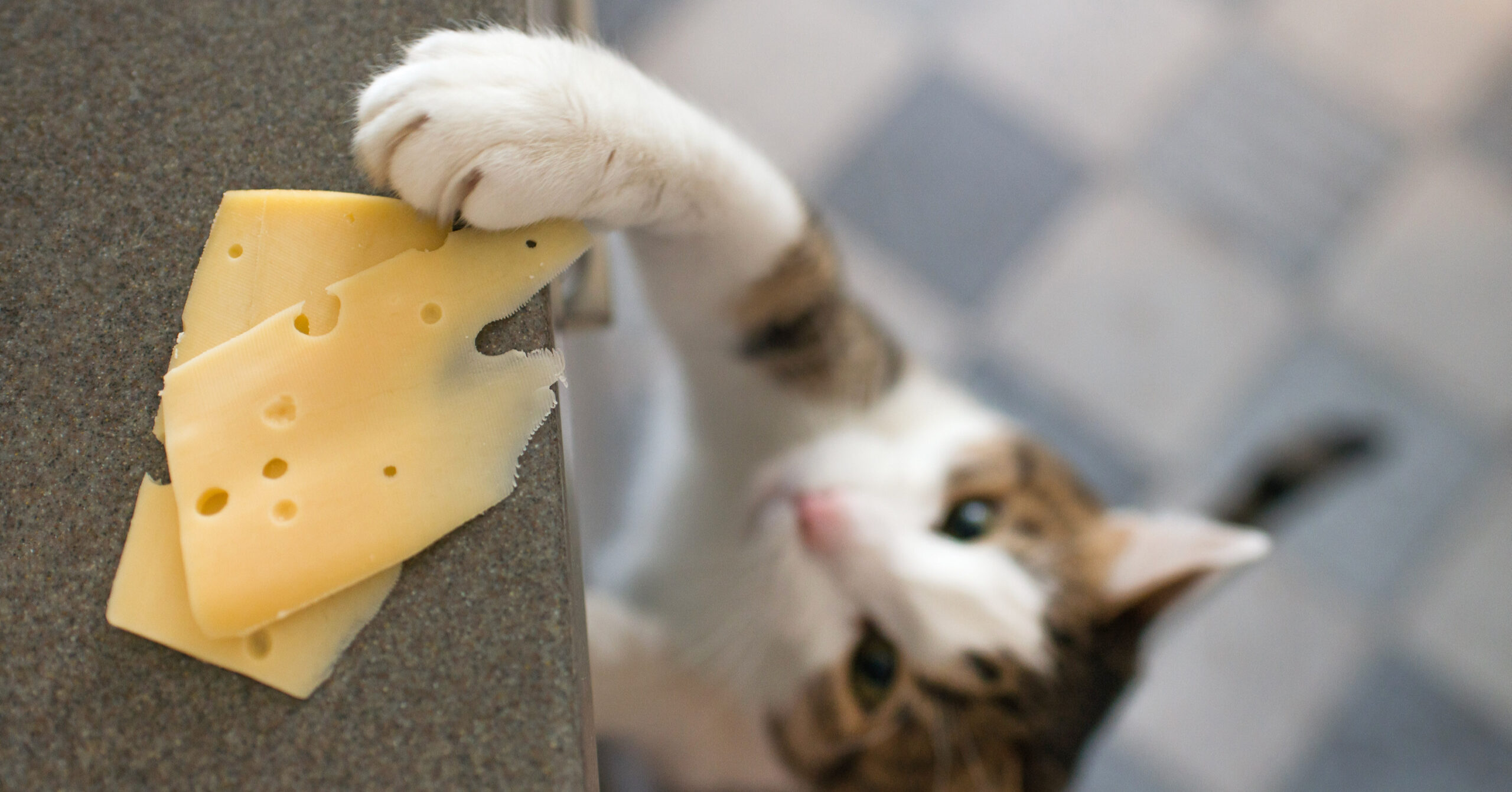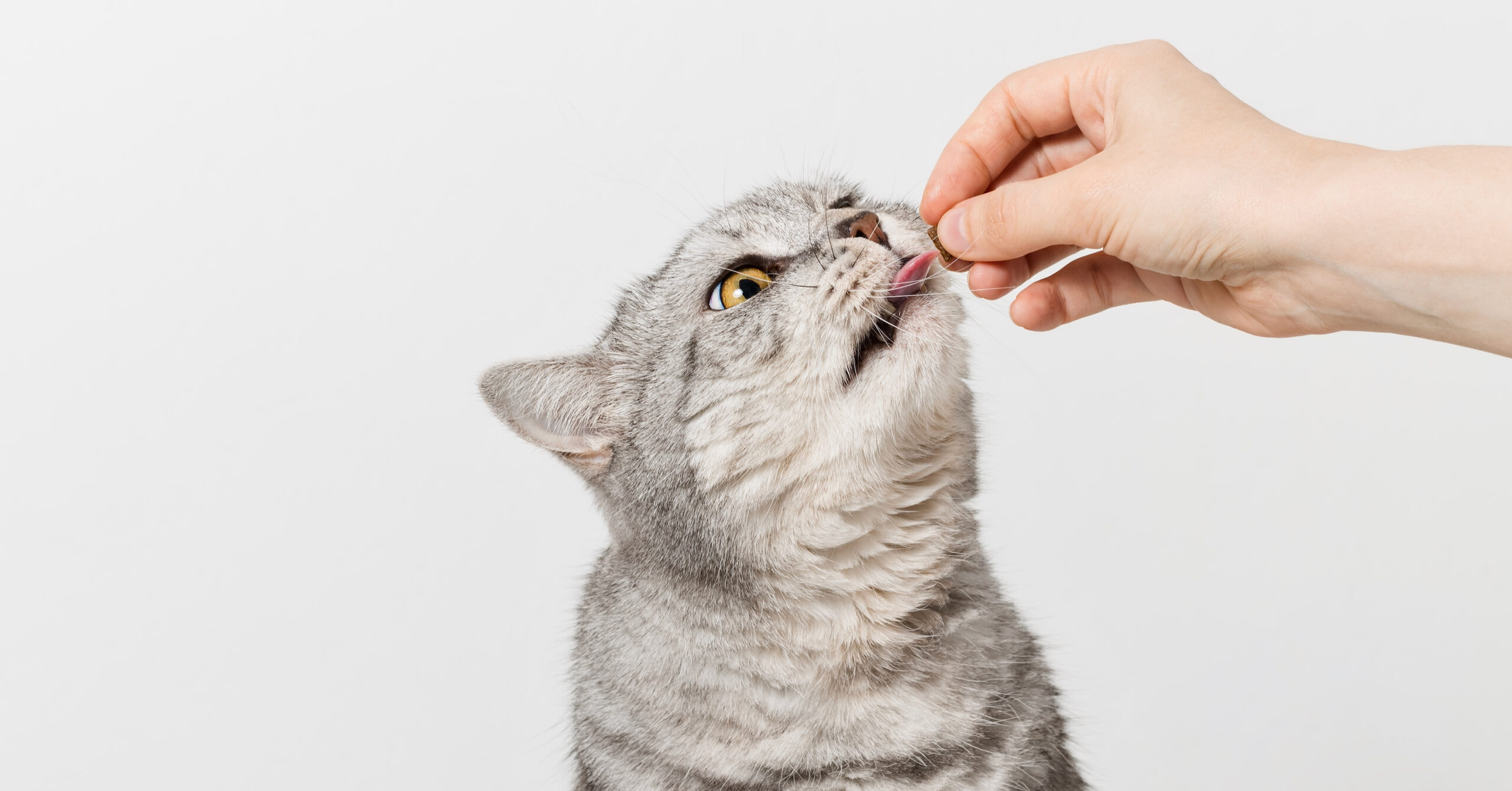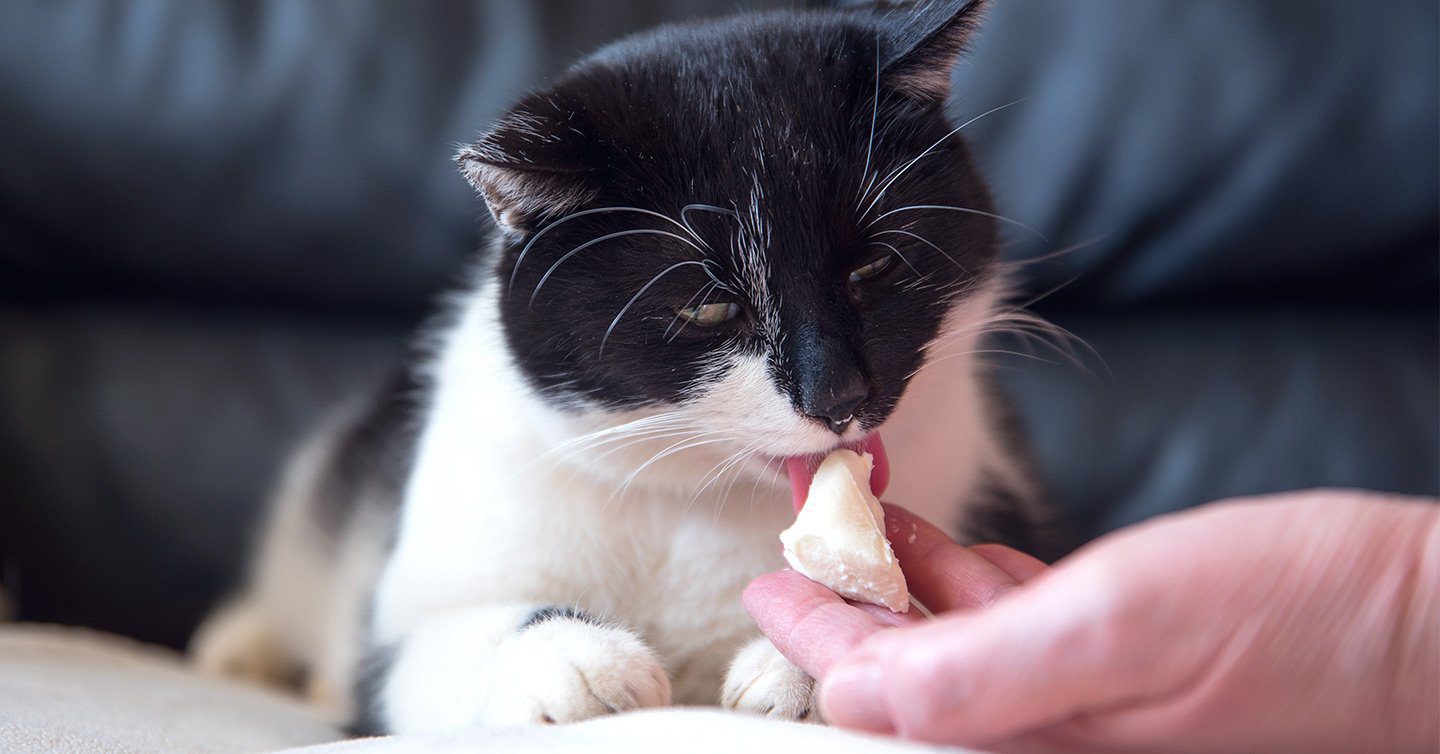Key Points
- Cats can eat cheese in small amounts, but they won’t get any nutrients from this snack.
- After weening, cats do not produce lactase, making it hard for them to digest cheese and dairy.
- Safe cheeses to share are cheddar, parmesan, feta, cottage cheese, and mozzarella.
If you love cheese, you may be tempted to share the occasional cheesy snack with your cat. But is it safe to feed your favorite sharp cheddar or funky gorgonzola to your kitty?
Cats can eat cheese, and it’s not toxic for them. However, cats don’t have the digestive enzymes necessary to break dairy down into something nutritious. Even if your cat has developed a taste for cheese (and who can blame them?), it doesn’t offer any health benefits. Also, some cheeses are dangerous for your cat and should be avoided.
So, for folks who love cheese almost as much as they love cats, this guide covers the best cheeses to share, just how much to give your cat, and which cheeses you should avoid to keep your cat healthy.
What types of cheese can cats eat?
The best cheeses for your cat are made from cow’s or goat’s milk and contain only cheese cultures, salt, and enzymes. Any additional ingredients could pose a health risk to your pet.
Not all cheeses are safe for cats. Some contain molds and additives that can easily cause an upset stomach in your kitty. You should also be aware of a cheese’s salt content before sharing. Too much salt in your cat’s system can cause problems like salt toxicity or poisoning, which is very serious and requires veterinary care.
Best types of cheese for cats
Cheese has no real health benefits for cats. However, if your curious kitty has developed a fondness for cheese, then we recommend sharing plain cheeses that are low in lactose and salt.
With this in mind, the best varieties of cheese for cats to eat include:
- Cheddar cheese
- Gouda
- Swiss cheese
- Cottage cheese
- Feta cheese
- Parmesan cheese
- Mozzarella
- Goat cheese
Types of cheese that are bad for cats
Many types of cheese aren’t safe for your cat to consume. Avoid any cheeses with harmful additives like herbs, seasonings, garlic, or the types of mold cultures found in blue cheese. Likewise, processed cheese or “cheese foods” should be avoided, though we’ll make an exception for cheese-flavored cat treats, which are formulated to be safe for cats.
Don’t share the following cheeses with your cat:
- American cheese: This type of processed cheese contains additives and high levels of salt.
- Blue cheese: Moldy cheeses like blue cheese can cause digestive issues, especially if your cat is older or has health problems.
- Cream cheese: This type of processed cheese is high in lactose and often contains harmful additives like herbs and seasonings.
Remember: Keep cheese as a small, occasional treat and avoid these options to keep your kitty happy and healthy.
Nutritional value of cheese for cats
Because cats can only have a small bit of cheese, and because they can’t digest it properly, there are no nutritional benefits for cats. Further, cats who are lactose intolerant will experience indigestion from even a small bite.
How much cheese can a cat have?

Knowing the calorie content of cheese is important when deciding how much is right to give to your cat. Here are some of the caloric values of cat-friendly cheeses:
- Cheddar cheese (10 grams): 40 calories
- Swiss (10 grams): 39 calories
- Parmesan (10 grams): 42 calories
- Cottage cheese (10 grams): 9.8 calories
- Feta cheese (10 grams): 26.5 calories
- Goat cheese (10 grams): 26.5 calories
While a particular cheese may be low in lactose, it can still be high in sodium, so keep portions small no matter what’s on the menu.
A cat’s daily calories depend on their weight, age, and special dietary needs. For example, an overweight cat will require fewer daily calories than a growing kitten. And no matter how much they meow before dinner time, treats for cats should only amount to 10% of their daily calories.
Here are the daily treat allowances for healthy adult cats of various weights. Use this guide to determine what the right amount of cheese would be for your cat:
- A 5-pound adult cat can have 19 calories of treats per day
- A 10-pound adult cat can have 28 calories of treats per day
- A 15-pounds adult cat can have 38 calories of treats per day
- A 20-pound adult cat can have 47 calories of treats per day
When feeding human food to your pet, it’s best to measure out the serving to ensure you’re not overfeeding them.
Health risks when feeding cheese to cats
Though some cats love the taste of cheese, they face health risks if they eat too much. When introducing a new food into your cat’s diet, check in with your vet, who can make recommendations based on your pet’s unique health needs.
Here are the top health risks you should be aware of:
Salt poisoning
Due to the high levels of salt in most cheeses, feeding your cat too much cheese could result in salt poisoning. Symptoms of salt poisoning include:
- Increased thirst
- Confusion
- Dizziness
- Seizures
If you notice your cat is experiencing any of these symptoms, call your vet.
Obesity
Cheese is high in fat and calories, which can lead to obesity in your kitty if given too often. As much as we love our chonky feline friends, keep portion sizes small. Overweight cats should avoid having cheese at all.
Lactose intolerance
Lactose intolerance is another risk of feeding cheese to cats. Most mammals only drink milk while they’re nursing, and so most dogs and cats lose their ability to digest lactose as they grow up. This happens when they stop producing the enzyme lactase, which breaks down the lactose in dairy products.
Signs of lactose intolerance in cats include:
- Diarrhea
- Upset stomach
- Vomiting
If your cat is displaying any of these symptoms after eating cheese, stop feeding it to them and consult your vet.
Milk allergy
A dairy allergy differs from a lactose intolerance, although there are some overlapping symptoms. The main symptoms of dairy allergies in cats include:
- Itchy skin
- Gas
- Abdominal pain
- Vomiting
- Diarrhea
- Weight loss
If they show these signs, stop feeding them cheese immediately and contact your veterinarian.
How to prepare cheese for cats
To prepare cheese safely, grate it into small pieces or cut it into very small cubes or slices (cat-size slices, not human-size slices). The goal is to make it small enough or flat enough that it doesn’t become a choking hazard.
Many cat parents use cheese to make it easier to give their kitty pills. A cheddar or soft cheese can make the pill-giving process easier if you pay attention to the amount you offer.
Most pet stores offer cat treats and cat food with cheese as a minor ingredient. These are also fine for your pet, but check the recommended serving size.

Can kittens eat cheese?
Kittens should only have a tiny amount of cheese due to its high calorie and sodium levels. Though they are better able to digest the lactose in cheese than adult cats, their mother’s milk is a more nutritious option.
Safe alternatives to cheese for cats
As carnivores, the healthiest treats for cats are meat like chicken, beef, and fish. Preparation is important here: all meat should be cooked without using salt, fats, or other spices. Make sure bones from chicken and fish are removed, too.
Eggs are also a great healthy snack for cats as they contain lots of dietary protein and vitamins. They should be cooked without butter, oils, or salt. The best methods for safely preparing eggs for cats are boiling, poaching, or scrambling.
As another type of special treat, watermelon is safe for cats to eat. It contains mostly water and electrolytes, making it a hydrating snack. But it also contains a lot of sugar, so only share it in small amounts.
So, cats can have cheese?
Yes, your cat can eat cheese, but know which cheeses are the safest to keep your cat purring and healthy. Only offer natural cheeses like cheddar, parmesan, and goat cheese, and avoid processed cheeses, stinky blue cheeses, and processed cheese products.
Most importantly, always share cheese in moderation. Too much cheese and your kitty could develop digestive issues like a tummy ache, diarrhea, or constipation.
When exploring new foods with your cat, it’s a good idea to have a plan in place in case they eat something that’s not right for them. A cat insurance plan can give you peace of mind in case of an unexpected trip to the vet. Pumpkin Pet Insurance plans can help you afford the treatment your cat needs by paying you back for a portion of eligible vet bills.
FAQ
- https://www.vet.cornell.edu/departments-centers-and-institutes/cornell-feline-health-center/health-information/feline-health-topics/feeding-your-cat
- https://www.petobesityprevention.org/pet-caloric-needs
- https://vcahospitals.com/know-your-pet/adverse-reactions-to-food-in-cats#
- https://www.petmd.com/cat/conditions/cardiovascular/c_ct_hypernatremia
- https://www.catster.com/cat-health-care/can-cats-eat-cheesecake/




